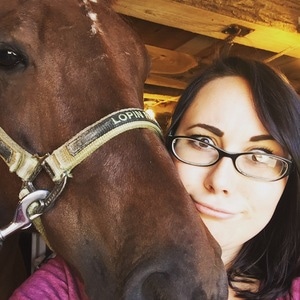Two weeks later, Sable mostly knew her way around Rosemanor Sanatorium. Birdie was patient with her, even when she got lost. In the mornings, she helped Birdie in the kitchen, and distributed breakfast in the large cafeteria. Most days breakfast was simple oatmeal, sometimes with berries or sliced sausage sprinkled atop the beige goop.
Sable avoided Cristofer Torell as much as she could. The most she did on any given day was bring him his meals. Below the larger slot in the door was a thin slit like the one the postman slipped mail through back home in London. She slid a tray of bland food through it, and Cristofer took it from her. She closest she ever got to interacting with him was opening the larger slot to check that he was indeed eating his meal. He never spoke—not that she expected him to—and rarely did anything more than stare at her.
Luckily, he hadn’t had an outburst in the two weeks since that first day. Birdie remarked that that was unusual for him to go so long without an incident. In the back of her mind, Sable dreaded the day she had to deal with one of those terrifying psychotic breaks. She guessed he towered over her by a head at least, but she had never stood face to face with him. And he definitely outweighed her; she doubted she’d be able to keep hold of him like Julien or the more practiced nurses could. When she peered through the slot in the door, he was either lying or sitting on his bed, unmoving, his eyes following her through the small opening. His straightjacket was eventually removed, and that scared Sable even more.
Her other charges weren’t so unsettling. There was James, the slow man that was easily distracted. Sable spoke to him like she would a child, gently reminding him who she was and that he needed to take his medication. Mary was an old woman, Birdie’s age at least, who muttered to herself constantly in her senility, her scraggly grey hair falling in front of her face. There was also Judith, the teenager several years younger than Sable, officially diagnosed with bipolar disorder. Every now and then, she’d be carted away to solitary literally kicking and screaming in rage, but most days she was jovial in the common room, her mood stabilized by her medication. Sable liked her charges well enough, once she figured out how to deal with them. Serving them their meals or medications was simple, and otherwise her days were mostly filled with looking after them like children.
She was grateful, however, when she could retire to her room in the separate nurses’ quarters across a large courtyard separate from the main building. Her little room wasn’t like her flat in London, but it was quiet. She had her bed with its brass frame and a nightstand like the patients did, though hers wasn’t bolted to the floor. Her room also came with a modest wooden dresser, where she kept her few belongings. The nurses all shared wash closets, the women in one wing and the men in another.
One day, Sable trudged across the courtyard toward the nurses’ quarters, a thin shawl wrapped around her shoulders to block out the wind. The temperature was beginning to drop; October would arrive soon. She turned as Julien jogged up, a jacket slung over one shoulder.
“Evenin’,” he said, grinning at her. She’d gotten to know the attendant over the past two weeks; he was charming but cool in any situation, always with a small smile on his face that suggested he knew some inside joke others didn’t. She smiled back at him in tired greeting.
“Didn’t see much of you today,” he said, bumping his shoulder against hers. She had to crane her neck to look up at him. He reached into his pocket and pulled out a box of cigarettes and matches. Gripping one with his teeth, he pulled a cigarette out of the box and lit it with smooth, practiced motions. The puffs escaped into the early autumn wind.
Julien was handsome, with a square jaw and a thin, finely shaped nose. He often tied his long, glossy black hair back from his face, but many loose wisps fell over his temples. He reminded her a little of the rugged mountain men on the covers of romance novels her mother might read. His eyes were blue like Cristofer’s, but framed by dark lashes and expressive brows. He was more than a head taller than Sable, all chiseled muscle and perfect angles. He turned those blue eyes on her, and she averted her gray ones, feeling heat rise to her cheeks. If he’d noticed her staring, he didn’t remark on it.
“Birdie had me running all about,” she said. “You know her, the busy bee. You’d think we were preparing for the end days.”
“Bit like London-town, eh?” he said around the cigarette. Sable laughed.
“A bit, yeah. Although it’s not like we’re on the war front,” she said. She gestured behind her toward Rosemanor with a wave of her hand. “These aren’t exactly soldiers.”
“No. But,” Julien began, his words skewed as he spoke around his cigarette. “They are soldiers in their own right.”
Sable furrowed her brow, looking at him. “What do you mean?”
“They’re fighting their own battles. A broken mind is just as bad as a broken limb, don’t you think?”
Sable shrugged. “I guess so.”
“Either way, this place is a hell of a lot better than whatever shite the Nazis are doing,” he said. “I hear they cart people away by the truckload.”
“Birdie would tsk at your language,” Sable laughed. “Even if it is about Nazis.”
“I have no doubt. Still though,” Julien said. “I think we all fight our own wars, one way or another. Some peoples’ wars just happen to be with their own minds.”
Sable looked down at her feet, stepping in front of one another along the path to the nurses’ quarters. What if she was a patient here, instead of a caretaker? What if her father, a soldier on the war front in Germany, was mad and had to be locked away in a straightjacket in solitary confinement? She couldn’t imagine being so trapped in her own mind.











Comments (0)
See all